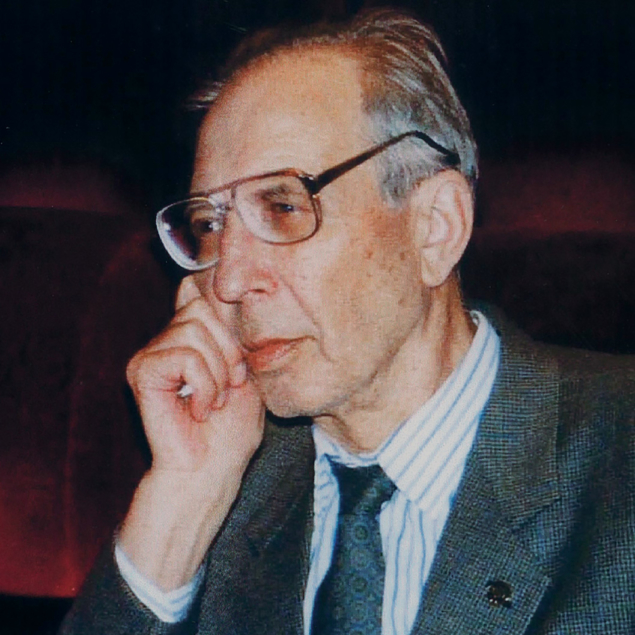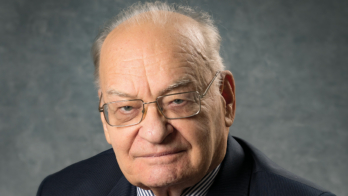
On 1 January, after a long struggle with a serious illness, Anatoly Vasilievich Efremov of the Bogoliubov Laboratory of Theoretical Physics (BLTP) at JINR, Dubna, Russia, passed away. He was an outstanding physicist, and a world expert in quantum field theory and elementary particle physics.
Anatoly Efremov was born in Kerch, Crimea, to the family of a naval officer. Since childhood, he retained his love for the sea and was an excellent yachtsman. After graduating from Moscow Engineering Physics Institute in 1958, where among his teachers were Isaak Pomeranchuk and his master’s thesis advisor Yakov Smorodinsky, he started working at BLTP JINR. At the time, Dmitrij Blokhintsev was JINR director. Anatoly always considered him as his teacher, as he did Dmitry Shirkov under whose supervision he defended his PhD thesis “Dispersion theory of low-energy scattering of pions” in 1962.
In 1971, Anatoly defended his DSc dissertation “High-energy asymptotics of Feynman diagrams”. The underlying work immediately found application in the factorisation of hard processes in quantum chromodynamics (QCD), which is now the theoretical basis of all hard-hadronic processes. Of particular note are his 1979 articles (written together with his PhD student A V Radyushkin) about the asymptotic behaviour of the pion form factor in QCD, and the evolution equation for hard exclusive processes, which became known as the ERBL (Efremov–Radyushkin–Brodsky–Lepage) equation. Proving the factorisation of hard processes enabled many subtle effects in QCD to be described, in particular parton correlations, which became known as the ETQS (Efremov–Teryaev–Qiu–Sterman) mechanism.
During the past three decades, Efremov, together with his students and colleagues, devoted his attention to several problems: the proton spin; the role of the axial anomaly and spin of gluons in the spin structure of a nucleon; correlations of the spin of partons; and momenta of particles in jets (“handedness”). These effects served as the theoretical basis for polarised particle experiments at RHIC at Brookhaven, the SPS at CERN and the new NICA facility at JINR. Anatoly was a member of the COMPASS collaboration at the SPS, where he helped to measure the effects he had predicted.
In 1976 he suggested the first model for the production of cumulative particles at x > 1 off nuclei. Within QCD, Efremov was the first to develop the concept of nuclear quark–parton structure function, which entails the presence in the nucleus of a hard collective quark sea. This naturally explains both the EMC nuclear effect and cumulative particle production, and unambiguously indicates the existence of multi- quark density fluctuations (fluctons) – a prediction that was later confirmed and led to the so-called nuclear super-scaling phenomenon. Today, similar effects of fluctons or short-range correlations are investigated in a fixed-target experiment at NICA and in several experiments at Jlab in the US.
Throughout his life, Anatoly continued to develop concrete manifestations of his ideas based on fundamental theory
Throughout his life, Anatoly continued to develop concrete manifestations of his ideas based on fundamental theory, becoming a teacher and advisor of many physicists at JINR, in Russia and abroad. In 1991 he initiated and became the permanent chair of the organising committee of the Dubna International Workshops on Spin Physics at High Energies. He was a long-term and authoritative member of the International Spin Physics Committee coordinating work in this area, and a regular visitor to the CERN theory unit since the 1970s.
Anatoly Vasilievich Efremov was the undisputed scientific leader, who initiated studies of quantum chromodynamics and spin physics in Dubna, one of the key BLTP JINR staff, and at the same time a modest and very friendly person, enjoying the highest authority and respect of colleagues. It is this combination of scientific and human qualities that made Anatoly Efremov’s personality unique, and this is how we will remember him.





